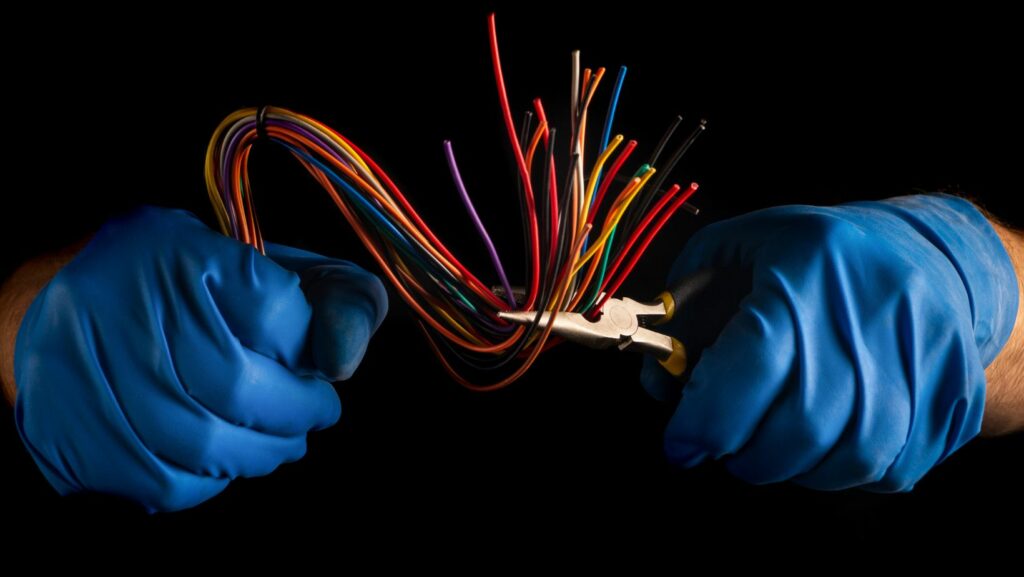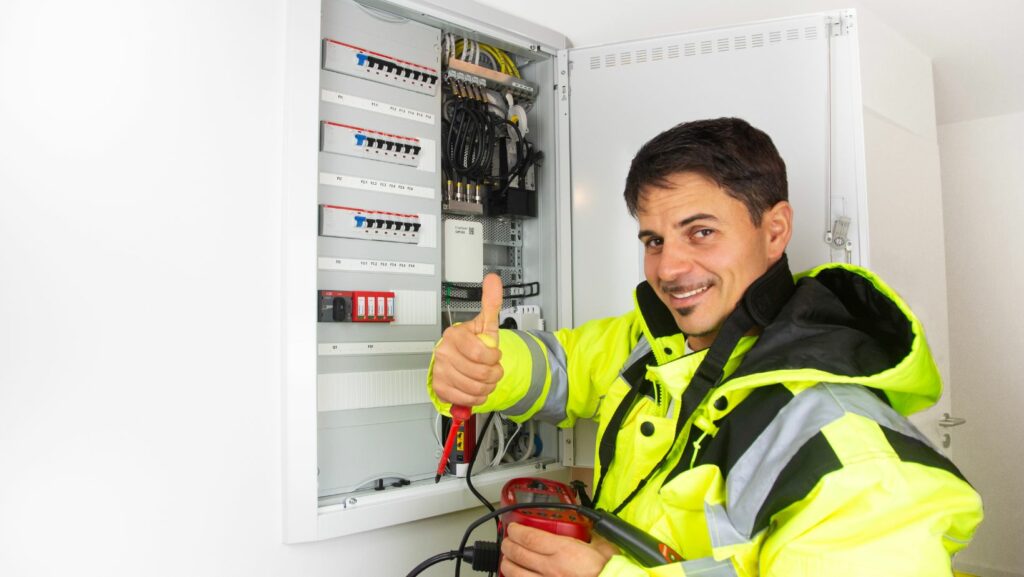Have you ever wondered what keeps the lights on, machines running, and technology functioning seamlessly in modern businesses? Did you know that nearly 90% of commercial power outages in the U.S. are caused by electrical system failures rather than utility disruptions? In today’s fast-paced commercial world, electricity is no longer just a utility—it is the lifeblood that keeps businesses running efficiently and safely. From office complexes and retail stores to manufacturing plants and medical facilities, reliable electrical systems are crucial for operations. At the heart of this infrastructure are commercial electricians, professionals whose expertise ensures that businesses can operate without interruption. Their role is both complex and indispensable, touching everything from safety compliance to energy efficiency.
Understanding the Commercial Electrician
A commercial electrician specializes in installing, maintaining, and repairing electrical systems in commercial settings. Unlike residential electricians, who generally work on smaller-scale electrical systems for homes, commercial electricians handle larger, more complex setups. These can include high-voltage wiring, industrial machinery, data centers, lighting systems, and fire alarm systems. Their work requires a deep understanding of electrical codes, safety standards, and the unique demands of commercial environments.
Commercial electricians often start with a strong foundation in electrical theory, usually obtained through formal training, apprenticeships, or vocational programs. Beyond technical knowledge, they must possess problem-solving skills, the ability to read and interpret blueprints, and the physical capability to work in sometimes challenging environments. Their expertise enables businesses to meet operational needs while ensuring safety and compliance with local and national regulations.
Installation and Upgrades: Building a Solid Foundation
One of the primary responsibilities of commercial electricians is the installation of electrical systems in new commercial constructions. This involves wiring buildings, setting up circuit breakers, installing lighting systems, and connecting HVAC systems. A commercial electrician must ensure that all installations meet the electrical load requirements of the business and adhere strictly to safety codes.
Moreover, businesses are constantly evolving, and their electrical systems must evolve too. Upgrading old wiring, installing energy-efficient lighting, and incorporating modern automation systems are essential services provided by commercial electricians. These upgrades not only improve safety and reliability but also reduce operational costs, demonstrating how electricians contribute directly to a company’s bottom line.
Maintenance and Troubleshooting: Keeping the Lights On
Once an electrical system is in place, ongoing maintenance is vital. Commercial electricians conduct routine inspections to identify potential issues before they escalate into costly problems. This preventive maintenance can include checking circuit breakers, testing emergency systems, inspecting wiring for wear and tear, and ensuring backup power systems like generators are operational.
When problems arise, commercial electricians are the first line of defense. Whether it’s a sudden power outage, malfunctioning lighting, or issues with specialized machinery, electricians quickly diagnose the problem and implement solutions. Their ability to troubleshoot efficiently minimizes downtime, which is critical in sectors where even a short interruption can lead to significant losses, such as manufacturing plants or hospitals. A safety-conscious commercial electrician ensures that every repair not only restores functionality but also upholds the highest safety standards for staff and equipment.
Ensuring Safety and Compliance
Safety is paramount in any commercial setting. Faulty electrical systems can pose serious risks, including fires, electrocution, and equipment damage. Commercial electricians are trained to install and maintain systems that comply with the National Electrical Code (NEC) and other local regulations. They also ensure that emergency lighting, fire alarms, and grounding systems are correctly installed and functional.
Beyond installation and maintenance, commercial electricians provide businesses with guidance on safety practices. They can recommend surge protection, backup power solutions, and energy-efficient systems that reduce strain on electrical networks. In many cases, businesses rely on electricians not just to fix problems, but to prevent them from occurring in the first place.
Supporting Technological Advancements
Modern businesses are increasingly reliant on technology, and commercial electricians play a crucial role in supporting these advancements. Data centers, smart buildings, automated manufacturing lines, and advanced security systems all require sophisticated electrical infrastructure. Commercial electricians design and install systems that can handle the high demand for power and connectivity, ensuring that technology operates seamlessly.

Moreover, electricians often collaborate with IT specialists, engineers, and facility managers to implement integrated systems. For example, they might set up the electrical framework for smart lighting or climate control systems, enabling businesses to reduce energy consumption and operating costs. Their expertise ensures that technological upgrades are safe, reliable, and scalable, supporting long-term business growth.
Energy Efficiency and Sustainability
Sustainability is no longer optional in the commercial sector—it’s a priority. Businesses are increasingly looking to reduce energy consumption and lower their carbon footprint, and commercial electricians are central to these efforts. By installing LED lighting, energy-efficient HVAC systems, and solar power integrations, electricians help businesses save money while meeting environmental goals.
Furthermore, commercial electricians can implement monitoring systems that track energy usage in real-time, providing actionable insights for optimizing power consumption. These initiatives not only improve operational efficiency but also enhance a company’s reputation as a responsible, forward-thinking organization.
Emergency Response: Reliability When It Matters Most
Electrical emergencies can strike without warning, and commercial electricians are trained to respond quickly and effectively. Whether it’s a power outage during peak business hours or a malfunctioning machine in a factory, electricians act swiftly to restore functionality and prevent further damage. Their ability to work under pressure and make critical decisions is invaluable to businesses that cannot afford extended downtime.
Many commercial electricians offer 24/7 emergency services, demonstrating their commitment to reliability. This level of service ensures that businesses can maintain operations, protect employees, and safeguard valuable equipment even in the most challenging circumstances.
The Business Case for Investing in Commercial Electricians
While some businesses may consider DIY approaches or outsourcing to less specialized technicians, investing in professional commercial electricians offers tangible benefits. Their expertise ensures compliance with safety regulations, minimizes downtime, and extends the lifespan of electrical systems. Additionally, electricians can provide strategic advice on energy efficiency, system upgrades, and technological integration, directly impacting a company’s profitability and sustainability.
In essence, commercial electricians do more than just wire buildings—they power businesses. Their work underpins operational continuity, supports technological growth, and safeguards employees and assets. Companies that recognize and invest in skilled electricians are better positioned to thrive in today’s competitive, technology-driven landscape.
Conclusion
The modern business environment depends heavily on reliable and efficient electrical systems, and commercial electricians are at the heart of this infrastructure. From initial installation and maintenance to troubleshooting, safety compliance, and energy management, their role is multifaceted and indispensable. By ensuring that businesses have a stable and secure electrical foundation, commercial electricians empower organizations to focus on growth, innovation, and long-term success.
In short, commercial electricians don’t just keep the lights on—they keep businesses moving forward. Their expertise, professionalism, and dedication make them essential partners in powering the commercial world, one circuit at a time.



